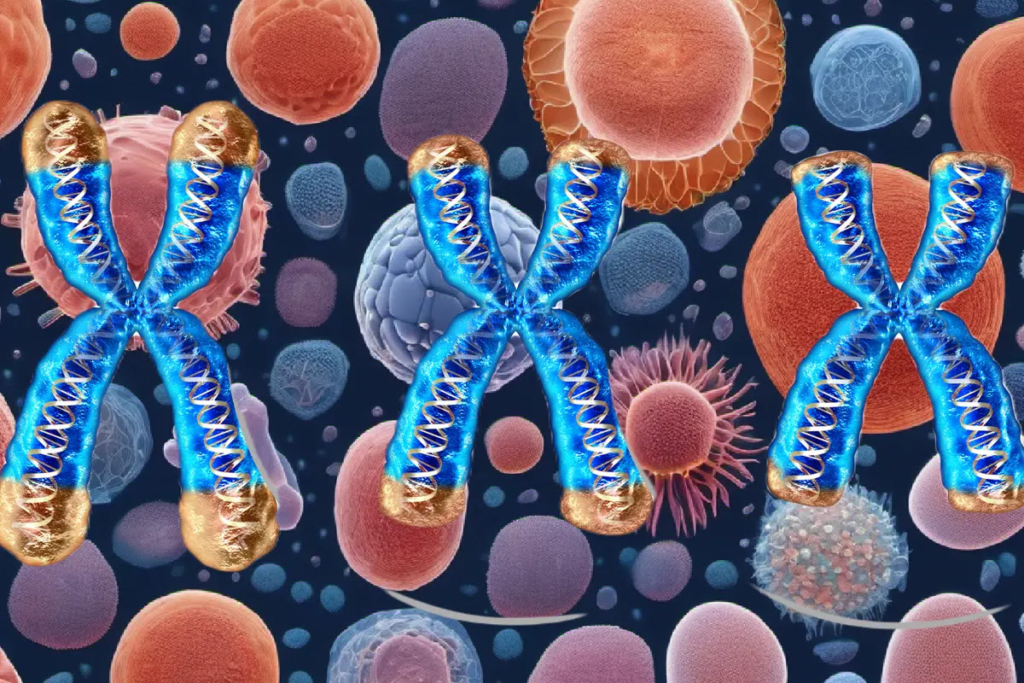Biology
By Michael Franco
June 24, 2024

As we age, the protective caps at the end of our chromosomes called telomeres get shorter and shorter Depositphotos
In pre-clinical trials, a small molecule effectively regrew neurons, reduced inflammation, and improved memory, speed, coordination, grip strength, and more. The finding could have a profound impact on aging and the diseases that accompany it.
In conducting the research, scientists at the University of Texas MD Anderson Cancer Center, turned their focus to telomerase reverse transcriptase (TERT), an enzyme that is known to help synthesize and extend telomeres, the protective caps at the ends of chromosomes that help cells divide. TERT levels are reduced as we age.
Without sufficient levels of TERT, when our telomeres shrink or get seriously modified, they can lead to a process that continually damages our DNA, which causes cells to release inflammatory compounds that can in turn lead to aging, tissue damage, and cancer.
So the researchers screened over 650,000 compounds to find a molecule that could reactivate TERT in mice that were the equivalent of 75 years old in human terms. They found one, and after administering this TERT-activating compound (TAC) to the rodents for six months, they witnessed the formation of new neurons in the memory centers of their brains known as the hippocampus, which helped the mice improve their performance on cognitive tests. This corresponded to an increase in genes involved in memory and learning.
Additionally, the researchers found that TAC reversed sarcopenia in the mice, which is another word for the natural weakening of muscle mass, strength, and coordination as we age. This was measured by stronger grip strength, speed, coordination and neuromuscular function in the mice.
Finally administration of TAC also reduced a process called inflammaging, the build up of inflammatory markers responsible for multiple diseases as we age. This was linked to TAC’s ability to repress the p16 gene, a key factor in cellular aging.
“Epigenetic repression of TERT plays a major role in the cellular decline seen at the onset of aging by regulating genes involved in learning, memory, muscle performance and inflammation,” said study author Ronald DePinho. “By pharmacologically restoring youthful TERT levels, we reprogrammed expression of those genes, resulting in improved cognition and muscle performance while eliminating hallmarks linked to many age-related diseases.”
The study authors say that more research is needed, but if the pathway they’ve uncovered with TAC continues to lead to positive results, the findings could have significant impacts on dealing with the ravages dealt out as our bodies age.
“These preclinical results are encouraging, as TAC is easily absorbed by all tissues, including the central nervous system,” DePinho added. “Yet further studies are needed to properly assess its safety and activity in long-term treatment strategies. However, our deeper understanding of the molecular mechanisms driving the aging process has uncovered viable drug targets, allowing us to explore opportunities to intercept the causes of a variety of major age-related chronic diseases.”
The study has been published in the journal Cell.
Source: MD Anderson Cancer Center

Leave a Reply